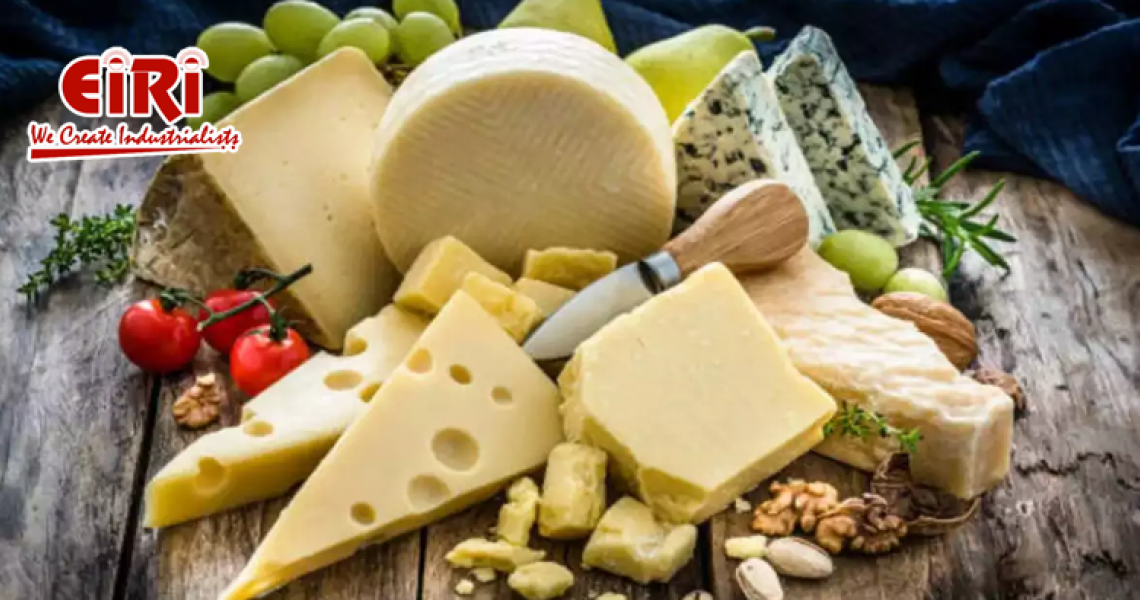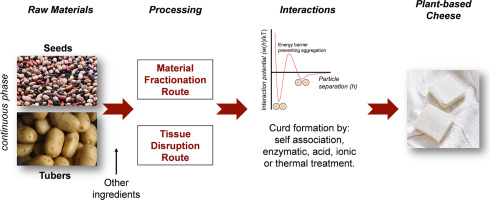Non Dairy Cheese/Vegan Cheese Business - The Plant-Powered Revolution

Vegan cheese stands as a revolutionary departure from traditional dairy-based counterparts, distinguished by its exclusion of any animal products in the production process. Crafted from an array of plant-based sources, notably almonds, cashews, and macadamia nuts, this dairy-free alternative is gaining prominence as a pivotal element in healthier lifestyle choices, with a particular emphasis on preventing dairy consumption.
The market size of vegan cheese is valued at USD 2.43 billion in 2021 and a projected compound annual growth rate (CAGR) of 12.6% from 2022 to 2030.
In a culinary landscape marked by innovation and evolving dietary preferences, the global vegan cheese market stands as a testament to the seismic shift towards plant-based alternatives. With a market size valued at USD 2.43 billion in 2021 and a projected compound annual growth rate (CAGR) of 12.6% from 2022 to 2030, the momentum of veganism is shaping the food industry, especially among millennials. Cheese enjoys an esteemed position, cherished by individuals globally. With the average person in the United States consuming around 38 pounds (17 kg) of cheese annually, it has become an integral part of diets worldwide. However, the surge in popularity of vegan and dairy-free diets has catalyzed the emergence of the Vegan Cheese Market to meet the escalating demand. Offering an extensive array of styles and flavors, vegan cheeses cater to diverse palates, composed of a blend of plant-based ingredients. The industry has witnessed a notable uptick in consumption, driven by the availability of diverse and flavorful options.

Procuring vegan cheese has become increasingly convenient, whether through in-store purchases or homemade preparations that often incorporate unexpected ingredients to achieve distinctive textures and flavors. Notably, major food corporations, including General Mills, have entered this burgeoning market, introducing non-dairy versions of popular products like Yoplait's "Oui" French-style yogurt and cow milk-free Häagen-Dazs ice cream. These companies are adeptly adapting to the shift in consumer preferences while still upholding their traditional product lines. Consequently, the non-dairy market is expanding, not only attracting vegans but also individuals exploring dairy-free alternatives, marking a significant industry shift.
The dynamic landscape of vegan cheese is continuously evolving, with consumer demand for healthier and more sustainable food options propelling market growth. The comprehensive report delves into an in-depth analysis of Vegan Cheese Market trends, dynamic market forces, and a competitive analysis encompassing major industry players alongside local contributors. As the Vegan Cheese Industry undergoes transformative changes, it mirrors the broader shift towards conscious eating, offering delectable alternatives that align with contemporary health and sustainability goals.
Vegan Cheese Market Trends: A Deeper Dive
Addressing Lactose Intolerance: The growing prevalence of lactose intolerance, affecting 65% of the adult human population, has spurred demand for non-dairy cheese. This shift is a result of consumers seeking alternatives to conventional dairy products to avoid digestive issues.
Health and Environmental Consciousness: Consumers are increasingly aware of the health implications of dairy consumption, such as lactose intolerance, allergies, and concerns about cholesterol. Additionally, the environmental impact of the dairy industry has led to a surge in interest in environmentally sustainable food choices, further driving the demand for vegan cheese.
Veganism Goes Mainstream: The global embrace of veganism, driven by concerns about climate change, animal cruelty, and health, has propelled the demand for vegan cheese. As veganism gains mainstream recognition, brands and companies are expanding their product portfolios to include vegan alternatives like cheese.
Innovations and Product Variants: The introduction of innovative product variants, including unique flavors, textures, and formulations, has become a key trend. These options provide consumers with diverse choices, making vegan cheese more appealing. This diversification enhances the overall market appeal and encourages more consumers to adopt vegan cheese.
Rising Tide of Veganism and Shifting Preferences
The ascent of vegan cheese is intricately woven with the growing acceptance of veganism, particularly among the younger demographic. Millennials, driven by concerns about animal cruelty and environmental impacts linked to the dairy industry, are making conscious choices in favor of plant-based alternatives. The surge in lactose intolerance cases further propels the demand for non-dairy cheese products, as evidenced by the prevalence of lactose intolerance in approximately 70% of the global population in 2019.
Planting Seeds in the Food and Beverage Industry
Shifting consumer food preferences and dynamic trends within the food and beverage industry are catalysts for the increasing demand for vegan cheese worldwide. Health-conscious choices, dietary restrictions, and the popularization of veganism are driving a global need for non-dairy cheese products. The non-dairy cheese market is projected to register a commendable CAGR of 8.1% during the forecast period, fueled by the rising awareness of animal cruelty and environmental concerns associated with traditional dairy products.
Driving Forces in the Vegan Cheese Market
Cruelty-Free Alternatives:
Ethical considerations regarding animal welfare play a significant role in the surge of vegan cheese consumption. Consumers are actively seeking alternatives that align with their values, driving the demand for plant-based, cruelty-free options.
Health Awareness:
The growing emphasis on health-conscious choices propels the popularity of vegan cheese. With attributes such as lower saturated fat, cholesterol-free composition, and lactose-free nature, consumers are increasingly perceiving vegan cheese as a desirable and healthier alternative to traditional dairy cheese.
Challenges and Restraints in the Vegan Cheese Market
Cost Considerations:
The production cost associated with vegan cheese, especially artisanal or specialized varieties, is relatively higher due to the expenses related to plant-based components and unique manufacturing processes. This cost factor may limit accessibility for certain consumer segments.
Shorter Shelf Life:
A noteworthy constraint in the vegan cheese market is the potentially shorter shelf life of some products when compared to regular cheese. This limitation could affect the distribution efficiency and overall availability of vegan cheese, posing a challenge for manufacturers and retailers.
Opportunities for Growth in the Vegan Cheese Market
The market exhibits ample potential for product expansion. Manufacturers can capitalize on this opportunity by introducing new tastes, innovative textures, and diverse forms of vegan cheese. Addressing a variety of consumer preferences will contribute to the continued growth and diversification of the vegan cheese market.
The Flourishing Vegan Cheese Market: A Peek into the Future
The vegan cheese market is poised for sustained growth, fueled by the alignment of consumer choices with ethical considerations and health awareness. As the market continues to evolve, addressing cost challenges and extending the shelf life of products can be crucial for widespread accessibility. With opportunities for product expansion, including the introduction of novel flavors and textures, the vegan cheese market is expected to thrive in response to the growing demand for cruelty-free, healthier alternatives. A holistic approach that considers consumer preferences, ethical concerns, and health-conscious choices will likely shape the trajectory of the vegan cheese market in the coming years.
The vegan cheese market's size is poised to reach USD 10.61 billion by 2030, reflecting a robust CAGR of 17.80% during the forecast period. A multitude of factors, including the rise of veganism, health consciousness, and innovations in product offerings, contribute to this phenomenal growth. As fast-food outlets, hotels, restaurants, and cafes continue to label their products with vegan cheese, and as the young population becomes more health-aware, the vegan cheese market is on a trajectory of sustained expansion.
The global surge in demand for vegan cheese is not merely a culinary trend but a reflection of a broader societal shift towards conscious and compassionate consumerism. As plant-based alternatives gain prominence, the vegan cheese market stands at the forefront of an ethical and sustainable revolution, offering a delectable and cruelty-free future for cheese lovers around the world.










